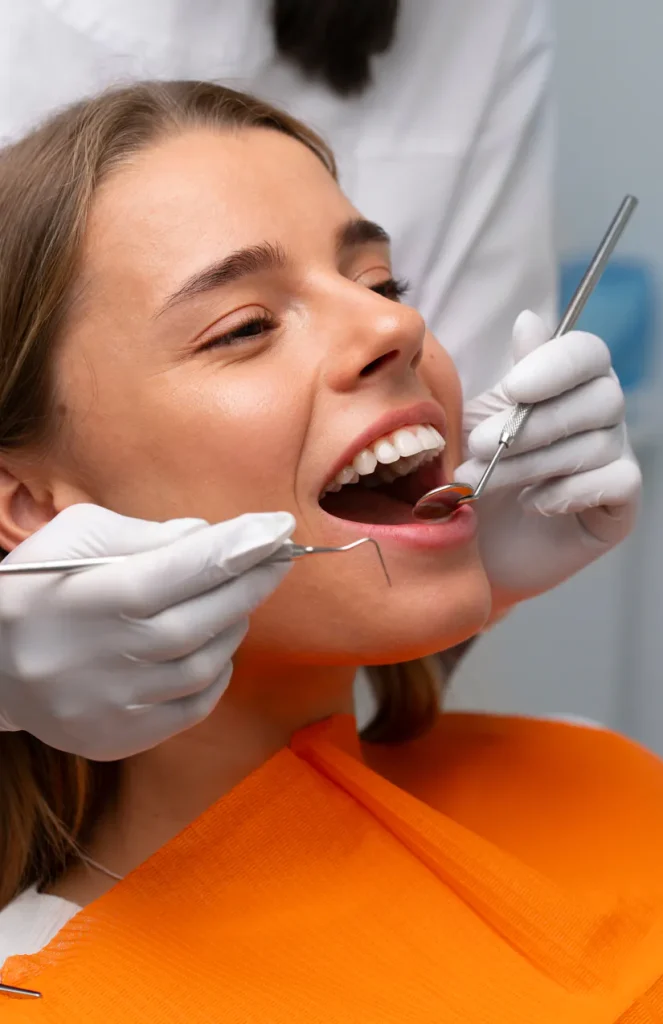In dentistry, so much is made about maintaining healthy teeth, but at Specialty Dental Care, we constantly preach the importance of keeping the gums healthy. Periodontal disease, or gum disease, is something that affects nearly half of American adults, and in patients over 65 years old, some sort of mild, moderate, or severe periodontal disease can be found in over 70 percent of patients. In other words, taking care of your gums is important and the first step in doing that is knowing what gum disease is and what causes it.
Symptoms of Gum Disease
It may be hard for an untrained eye to simply look at a set of gums and determine whether or not they are healthy, but there are a few symptoms that suggest something may be awry. For example, gums that bleed easily while brushing or flossing may indicate gum disease, while swollen, red, or tender gums can be another symptom. If gums are receding away from the teeth, perhaps even to the point of some adult teeth growing loose, that could be an indicator, too. Finally, sharp or dull pains, persistent bad breath, or even heat or cold sensitivity can be signs of gum disease, as well.
Causes of Gum Disease
There is one main cause of gum disease: the bacteria in plaque. This is the main reason it is imperative to get teeth cleaned by a dental hygienist every six months because they can diligently remove that plaque and the bacteria that comes with it. Brushing and flossing alone don’t eliminate this; professional cleanings are required to minimize the risk of periodontal disease.
Types of Gum Disease
There are four main stages of gum disease:
Gingivitis
The earliest type of gum disease is gingivitis, which starts with inflammation of the gums. It is caused by a buildup of plaque around the gum line and can lead to reddened or swollen gums, as well as some bleeding during brushing. The good news is that this early diagnosis of gum disease can be reversed since it isn’t deep into the teeth or connective tissue yet.
Early & Moderate Periodontitis
Early and moderate periodontitis can respond well to more conservative care with a healthy outcome. This more advanced iteration of periodontal disease does make its way into the bone that holds the teeth in place. Plaque deposits itself under the gum line and causes quite a bit more damage. A periodontist can help prevent further damage, but help in this case goes beyond increased brushing and flossing.
Advanced Periodontitis
Advanced periodontitis calls for more aggressive care, in most cases surgical intervention and close observation are a must. In this case, the fibers and bone in the teeth are being actively destroyed, causing teeth to get looser in the gums. This can get bad enough where teeth may have to be removed, but at the very least major restorative procedures are required to save the damaged teeth.
While it certainly is important to take care of your teeth, periodontal disease can result from not also taking proper care of your gums. Real dental health encompasses a whole lot more than the teeth themselves, so if you think you may be dealing with the early signs of periodontal disease, reach out to someone here at Specialty Dental Care today!


